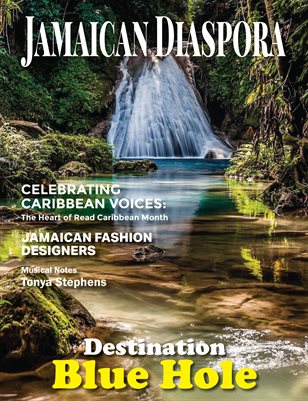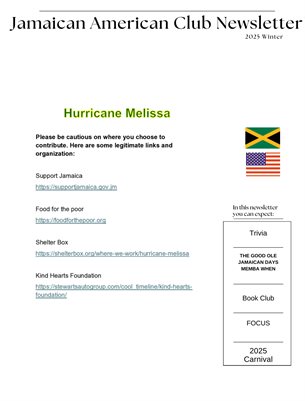In the eastern Canadian province of Nova Scotia, an unsung branch of the black diaspora persists. The history of the black Nova Scotian community is a singular story of survival that is all-too-often overlooked. It shouldn’t be; it involves not only one small province, but also two continents.
People of African descent have been part of Nova Scotia’s history since the beginning of European exploration and colonization – and, perhaps, before that. A black man named Mathieu Da Costa was part of a 1608 French expedition. Da Costa served as an interpreter between the French and local Mi’kmaq people. His knowledge of the Mi’kmaqs’ language suggests that he had prior experience among them.
The first major presence of blacks in the region came in the wake of the American Revolution. Lord Dunmore, royal governor of Virginia, offered freedom to African slaves who joined the British in their battle to suppress the rebellious American colonists. Blacks were faced with a choice between rebels who desired freedom for themselves but not their slaves; and a colonial power that promised freedom for the slaves.
Many blacks chose to join the British before the Americans belatedly promised freedom to slaves who fought for the rebellion. After the British lost the war in 1783, they resettled most of the blacks who had fought for their cause in Nova Scotia – which had opted out of the revolution. About 3,500 Black Loyalists, as they were called, migrated northward – along with 1,200 slaves held by Loyalist whites who had also fled the newborn United States.
Like the whites, the free blacks were promised land and provisions as a reward for their loyalty to the Crown. Unlike the whites, the blacks received less than they were promised – and sometimes nothing at all. Even so, a group of Black Loyalists founded Birchtown, the first free black settlement in North America. Angered by the lower wages the blacks were forced to accept, whites from neighboring Shelburne stormed Birchtown in North America’s first race riot.
In 1791, John Clarkson, a British agent for the settlement of freed slaves in the West African colony of Sierra Leone, came to Nova Scotia to recruit Black Loyalists for a “back-to-Africa” migration. The blacks’ experience in Nova Scotia had been far from idyllic. Racism was making a mockery of their freedom. Thus, about half of the Black Loyalist population set sail for Sierra Leone in 1792. The half who decided to stick it out in Nova Scotia – along with another group of freed African-American slaves who arrived after the War of 1812 – formed the ancestral core of the province’s black community.
That community remained small and scattered. Some blacks lived in Halifax and other cities and towns; others in isolated rural communities built on those early land grants. African Nova Scotians have struggled against the same racism that besets blacks throughout the diaspora. Within the context of that struggle, some black individuals from the province have made their mark in the wider world. Here are some examples:
William Hall, son of freed slaves, was the first black person and first Nova Scotian to earn the Victoria Cross, in service with the Royal Navy during the Indian Mutiny of 1857.
George Dixon became the first black boxer to win a world championship when he took the bantamweight title in 1890.
Sam Langford, a 5-foot-7 pugilist who started his career as a lightweight and ultimately competed successfully at heavyweight during the early 1900s, was so feared that no champion – not even the great Jack Johnson – was willing to give him a title shot.
Portia White was an opera and concert singer of the mid-20th century whose voice was favorably compared with that of the legendary Marian Anderson.
Daurene Lewis became the first black woman mayor in North America when she was elected in Annapolis Royal in 1984.
More recently, poet George Elliott Clarke won the Governor General’s Award in 2001, for his book Execution Songs. Kirk Johnson fought for a world heavyweight title in 2002. And in 2006, Mayann Francis was appointed Lieutenant-Governor of Nova Scotia.
Over the centuries since 1783, the core black community has been augmented by newcomers from other parts of Canada, as well as migrants from the United States, the Caribbean, other parts of the diaspora and Africa itself. But the population remains small, and black people continue to face racism in the education, economic and justice systems.
Still, the community perseveres and progresses, keeping alive the heritage of ancestors who took a chance on a hope for freedom during a time of slavery.
By Charles R. Saunders is the author of the Imaro novels.
To learn more about his work, visit www.charlessaunderswriter.com





3 comments:
Someone deleted several links from iskladka and filefactory servers.
From now, we will use www.tinyurlalternative.com as our main [url=http://www.tinyurlalternative.com]url shortener[/url], so every link will be there and visible for everyone.
You can choose from several great [url=http://kfc.ms]short url[/url] names like:
kfc.ms easysharelink.info jumpme.info megauploadlink.info megavideolink.info mygamelink.info myrapidsharelink.info mytorrentlink.info myurlshortener.com mywarezlink.info urlredirect.info urlshrinker.info weblinkshortener.com youtubelink.info and many others.
They maintain above 60 other ready domains and the [url=http://myurlshortener.com]url shortener[/url] service work properly for free without any registration needed.
So we think it is good idea and propose you to use [url=http://urlredirect.info]url redirect[/url] service too!
Thank you.
I really like when people are expressing their opinion and thought. So I like the way you are writing
I read about it some days ago in another blog and the main things that you mention here are very similar
Post a Comment